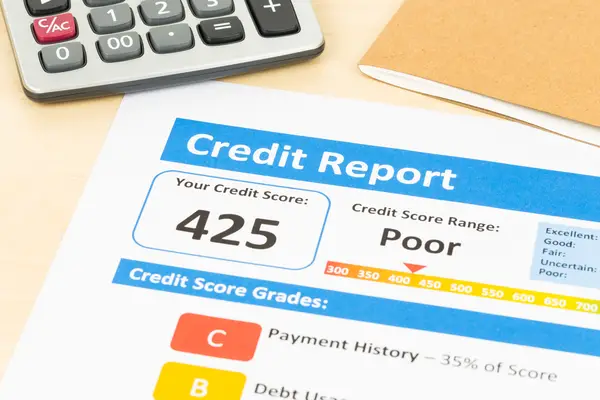
There are several important steps to manage finances with a bad credit score. Importantly, your credit score is one of the most important measures for your financial health. Often, lenders evaluate it to see how responsibly you use credit. Additionally, if you have a higher credit score, it can be much easier to get approved for new lines of credit. As an individual looking to manage your finances with a low credit score, there are several steps you can follow. Indeed, with the right strategies and dedication, you can lower your debt, improve your credit score, and increase your savings. Read on to learn more about how to manage finances with a bad credit score.
Pay On Time When Possible
First, it is essential to pay on time when possible. Ideally, you should strive to pay all of your bills, including your credit cards on time. Notably major credit scoring companies put the most emphasis on timely payments. Indeed, a payment that is over 30 days late can often damage your credit score immediately. In some cases, this can cause credit scores to drop by as much as 100 points. Fortunately, there are several simple steps you can take to help you pay on time and avoid credit damage. For example, you can set up automatic payments on your bills. Of course, you can alternatively set reminders to pay if you’re worried about over drawing from your account. Ideally, set a reminder several days before your due date to give you time to transfer your funds. Certainly, it is important to make your credit card payments on time.
Avoid Hard Inquiries
Next, another financial management technique for low credit is to avoid hard inquiries. Importantly, a hard inquiry happens when a lender evaluates you for a specific purchase or financial product. Typically, it appears on your credit report and may affect your credit score. This is because lenders consider you a greater risk if you’re attempting to borrow money from different sources. Additionally, applications for a new credit account can account for 10% of your credit score. Of course, soft inquiries do not affect your credit score. Therefore, you usually do not need to worry when you check your own credit or when a lender checks your credit to pre-approve it for a product. When managing your finances with a bad credit score, try to avoid hard inquiries.
Follow The 30% Rule
In addition, you can also follow the 30% credit card utilization (CCU) rule to improve your money management. Your CCU ratio is the amount of credit you have available versus the amount you are spending. According to financial experts, keeping this ratio around 30% is one of the best cures for bad credit. Indeed, companies know that you are using the credit you have and making a payment history. Simultaneously, they can see you are not abusing your credit. To calculate your 30% CCU ratio, divide your credit card balance by your credit limit. Then, multiply by 100. If possible, try to keep all of your individual revolving credit accounts below 30% CCU to improve your financial management strategy.
Dispute Errors
Moreover, you should dispute errors if you find them. While errors are not always common, it’s worth spending the time to resolve them if you find one. To identify a credit card error, you should first obtain a full copy of your credit report. Next, check your identify information, credit card list, outstanding debts, and major purchases. If you see any mistakes, copy the report and highlight the error. In addition, gather any information you have to solidify the credibility of your claim. This may include bank account statements or receipts. Once you have your proof documents, write a letter to your credit reporting agency that shows the error. Ideally, you should explain the mistake and include a copy of the highlighted report with your documentation. Some of the three credit bureaus let you submit disputes online as well. However you choose to submit, keep a copy for your records as well. Absolutely, disputing errors can help improve your credit.
Lower Monthly Expenses
Furthermore, you should try to lower your monthly expenses when you have a low credit score. To do this, you should cut purchases that are unnecessary, such as a new car or phone service upgrade. Often, individuals add to their new monthly bills without considering how it can impact their monthly budget. Another strategy to manage your spending is to enroll in a debt management plan. Typically, these are carefully constructed by financial professionals to consolidate credit card debt payments into one affordable monthly fee. Importantly, some creditors require you to close your credit accounts. However, some will agree to allow you to keep one card off the program to use in emergencies. Certainly, evaluate your budget to see which strategy is best to cut your monthly expenses.
There are several important steps to manage finances with a bad credit score. First, pay all of your bills on time when possible to prevent your score from getting lower. Next, avoid hard inquiries, as these can damage your credit score as well. In addition, follow the 30% rule to improve your financial management. Moreover, always dispute any errors you find. Furthermore, lower your monthly expenses by being mindful of your purchases or enrolling in a debt management program. Follow these steps to learn about how to manage finances with a bad credit score.
 Business First Family Business, Accounting, Finance, Investing, Marketing And Management
Business First Family Business, Accounting, Finance, Investing, Marketing And Management